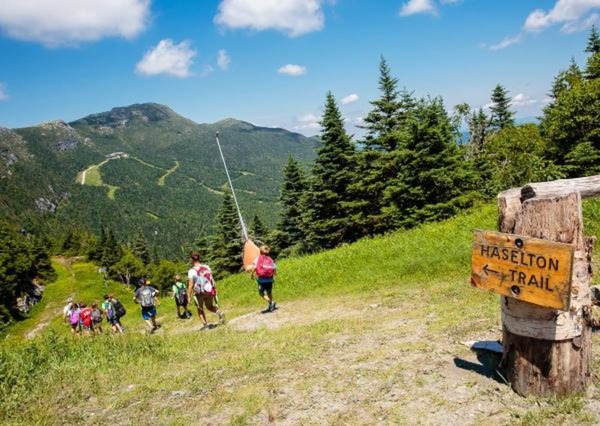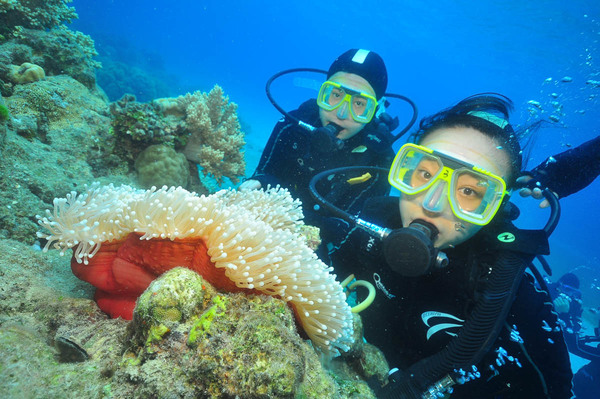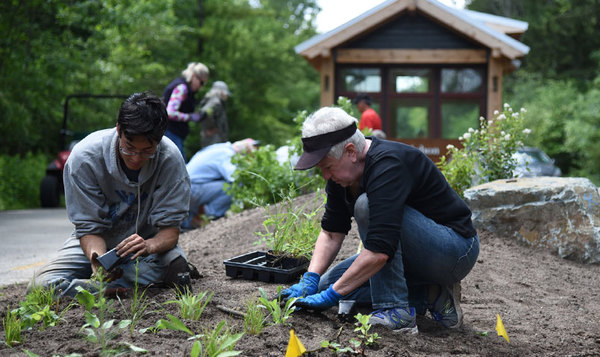Green travel has been considered one of the leading green service industries. Green travel really impacts the environment of businesses and tourism consumers. Green travelers and travel companies seek to reduce the footprint through many activities primarily on reduce, reuse and recycle. The following will reveals 10 practical tips for environmentally friendly travel that are easy to achieve.
What Is Green Travel?
Green living– the lifestyle that aspires to conserve and protect the Earth’s natural resources, habitats, and biodiversity– was beginning to grow in popularity. As a result, Green travel has formed and become increasingly popular. That is all about trying to make smarter choices that help to mitigate the negative impacts we create when we travel.
According to the statistics, the field of ecotourism was largely unknown to average travelers before. But now it had become the buzzword it is today. Most travelers are increasingly inclined to make more environmentally sound choices and travel green.
We are not able to control the carbon emissions of the planes we fly in, the chemicals used by the hotels in which we stay and what others sell on travel destinations but we can choose more eco-friendly transportation, hotels, tour operators, and shopping that do less damage to the environment and create more benefits for local people.
Tips to Make your Trip Eco-friendly
Green Transportation
Booking non-stop flights to your travel destinations do not mean cutting down airplane’s carbon emissions. Whatever you book or not, There will still have flights to those places thought even though takeoffs and landings creating most of an airplane’s carbon emissions. If you do fly, consider doing so with one of the 30+ IATA (International Air Transport Association) member airlines who offer carbon reduction programs to neutralize the aircraft’s emissions. If you have the time, traveling via bus, train or ship generally has less negative environmental impact than traveling by plane.
Taking public transport is one of the best things you can do for the environment when traveling. That means you’re not creating any additional carbon emissions from private transport. It will also build your travel experience, providing you with opportunities to interact with locals.

If you’re traveling with family or friends and the destination is within driving distance or not, perhaps you should consider taking a road trip. But if you’re traveling by yourself, it’s actually much more eco-friendly. If you decide to drive to your destinations, consider driving or renting a hybrid or electric vehicle, which uses less fuel and produces fewer carbon emissions than gas-guzzlers.
Choosing Green Hotels
When traveling in the U.S., check to see if the hotel has LEED Certification from the U.S. Green Building Council. That is the program judges hotels on sustainable site development, water savings, energy efficiency, material selection, indoor environmental quality, and innovation in design.
When traveling overseas, look for seals of approval from other certification programs, such as Green Globe, Rainforest Alliance (Latin America, Caribbean), EarthCheck (Australia) and Green Tourism Business Scheme (UK), certification programs to rate sustainability.

If you are traveling in budget and just need a bed to sleep and you just need to get out of the hotel mindset and consider alternative overnight accommodation. Sleeping doesn’t have to be expensive! That will be open-minded adventurers and interesting by meeting new people, going for a drink, learn about the local cuisine, a few words…This definitely helps you save money and also cut down water demands, energy, chemicals from luxury hotels.
Water-saving
Take showers, not baths. Showers use just 10-25 gallons of water, while baths use up to 70 gallons. Trying to take shorter showers, turning the water off while you lather up, shampoo, shave, and/or brush your teeth is a good way to save water.
Hang up your towels after each use to use them again without washing. You don’t wash your towels every day at home, so why do it when you travel?
Do not ask to use the hotel laundry, as they typically wash every guest’s clothes separately (even when there are only a few items). The solution is washing your clothes as we shower, then hang them up overnight so they’re dry the next day.
Energy-saving
Try to walk, bike, or use public transportation to get around whenever possible, which cuts down on gas usage and saves you money.
Turn off all lights, heat/AC, and television when you leave your room. Closing the curtains and blinds can help keep out the heat of the sun in summer.

Ask to not clean the room for the duration of your stay. This cuts down on chemical cleansing agents, electricity used in vacuuming, and the washing of bed linens.
Return maps, tourist info once you’re finished with them so that they may be reused by future travelers.
Green Shopping
Buy locally made (preferably handmade from indigenous artisans) products, rather than those that have been imported that generally benefit the environment and the social and economic well-being of the local people. Items that are flown or shipped in have a much larger carbon footprint.
Don’t buy anything made from endangered plants/animals, unsustainable hardwoods, or ancient artifacts. That is not only is it wrong, but you probably have to let them behind through customs.
Plastic bags can take that long to biodegrade so take a re-useable shopping bag with you when you go shopping in local markets.
Eco-friendly Tour
Travel with smaller groups tend to have less of an environmental impact, so travel with a small-group tour operator that’s environmentally responsible. Before you book, ask what size the group will be.
Choose a tour operator that tries to conduct itself in an environmentally responsible, sustainable manner.
Don’t take any tour that promises hands-on encounters with wild animals, such as riding elephants or walking with lions. If you do so, you’re supporting an industry that captures, transports, and abuses millions of animals each year.
Green Hiking
Marked hiking trails are there for a reason. Stick to the path to avoid harming native flora and avoid any creepy-crawlies that may be lurking in the underbrush.
Never feed or touch wildlife, for any reason. Feeding animals makes them habituated to and reliant on humans, and often leads to attacks.
Keep a respectful distance from wildlife even though you hopefully want to Instagram your encounter with them. But if you’re close enough to attract an animal’s attention, you can be attacked! As a result, the animal will most likely be killed.

Research weather conditions and terrain before you go hiking. You would not want to be the guy (or girl) who gets lost and required rangers to rescue, which drains public resources.
Green Diving
When snorkeling or Scuba diving, don’t touch/step on the coral or stir up sediment, essentially it can damage the reef’s fragile ecosystem.

Ask your snorkel or scuba diving tour operators if they chum the water to attract marine life. If you do so, this can change the behavior of marine species, or possibly make them sick.
Green Consumer
Unused portions are often thrown away at the hotel when you leave. So take any leftover soap, shampoo, or toothpaste with you to take advantage of all their benefits.
Take a reused bottle that can be a BPA-free water bottle you can refill over and over again. Many international airports, hotels have free water dispensers, which saves you money and wasting plastic bottles.
Discovering local food treasures in a new country rate as one of the best travel experiences you can have. Local food is fresher and tastes better. You don’t need to travel far to get to your food.
Offset your carbon footprint
Donate to a tree planting scheme, environmental protection programs or volunteer your time to find a local river cleanup or plant trees…

Green Traveler
Honor local customs. Do a little research before you travel to learn about the destination’s local cultural traditions so that you can speak and behave appropriately.
While traveling, keep a spare bag for storing all the wastes (plastic bottles/chips packets etc) and dump them later when you find a dustbin. Stop the bad habit of throwing wastes anywhere you want and start looking for a dustbin instead!
